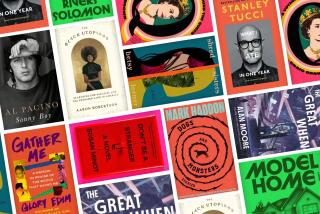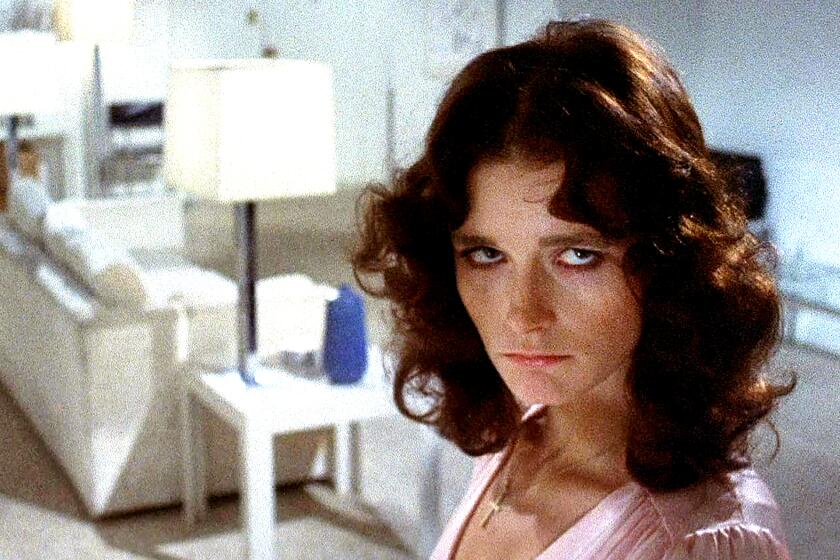Home Sweet Home
Kazuo Ishiguro, like the best novelists, has made a career of lying through his teeth. The author of “A Pale View of Hills,” “The Remains of the Day” and, most recently, “The Unconsoled” is a Japan-born Englishman of chameleonic tendencies. No wonder the most reliable characteristic of his narrator-heroes is their absolute unreliability.
Christopher Banks, the narrator of his latest novel, “When We Were Orphans,” is as untrustworthy as the best of them, and for good reason. Born at the turn of the 20th century in Shanghai, the only child of a British businessman and his beautiful wife, Christopher grew up with the golden acuity of observation of a strange boy in a strange land. Until age 9, he lived in a large middle-class house owned by his father’s employers, Morganbrook and Byatt, the chief importers of opium to the Chinese mainland. With his father at work and his mother busy developing a sideline as a Carrie Nation, lobbying against the drugging of China by her husband’s firm (the Firestone and Phillip Morris of its day), Christopher has plenty of time on his hands. Next door, through the hedge, lived his best friend, Akira, the son of Japanese ex-pats. Together Christopher and Akira create a world based on the kind of misunderstandings that only children who observe their parents too closely can have.
For the record:
12:00 a.m. Nov. 12, 2000 For the Record
Los Angeles Times Sunday November 12, 2000 Home Edition Book Review Page 2 Book Review Desk 1 inches; 20 words Type of Material: Correction
The name of the company Philip Morris was misspelled in reviews Sept. 24 and Nov. 5. Last, we misspelled Bertolt Brecht’s first name Oct. 22.
Then suddenly, within the space of a few weeks in 1915, first Christopher’s father and then his mother disappear. The young boy quickly finds himself on a boat to the ancestral England of his parents, trying to act as British as possible. It is the first of many defenses against the utter incomprehensibility of this savage caesarean from his foreign birthplace. As he grows--under the remote care of a distant aunt, first at boarding school, then at Cambridge and finally in London--Christopher aims the prow of his ambition at a career he lit upon in the early days after his father’s disappearance. He will become a detective.
He enters society, thanks to his genius for making the logical connections of detection that are key to rooting out the evil in society. But he remains at the periphery at dinner parties and dances, detached. Only one person snags Christopher by something more than his coat sleeve--”a small, rather elf-like young woman with dark, shoulder-length hair. . . . A slight crouch around her shoulders, like that of a bird of prey, gave her posture a suggestion of scheming. Above all, I noticed a certain quality around her eyes--a kind of severity, something ungenerously exacting--which I see now, in retrospect, was what more than anything else caused me to stare at her with such fascination that evening.” It is the observation of recognition, of a certain kind of longing for belonging, for a Britishness that always seemed just out of Christopher’s reach. Soon we realize that Christopher owes his fascination to the fact that Sarah Hemmings, like him, is an orphan.
In a series of journal entries, beginning in 1930 and ending nearly 30 years later, Christopher provides cross-sections of a life engaged in unraveling his most important mystery. But they are as much cross-sections of Christopher’s brain as cross-sections of the real world. Once worldly success has given him the psychic and financial wherewithal, Christopher travels back to Shanghai and the origins of his trauma.
The Shanghai of his return is a much-changed city, with the former grand houses of the British merchant class divided into many apartments. From doorman to diplomats, all seem to recognize Christopher Banks--the great detective and the bereft child--and the seriousness of his quest. That quest takes him through the Maginot lines of psychological defenses that he has spent a detective’s life erecting. His psychological jeremiad takes him through denial, repression, displacement, projection, identification and a host of other methods of dealing with the loss of innocence that began with the disappearance of his parents. For Christopher, search for the truth as he might, is armed to the teeth with an artillery that will ensure he never finds it.
But “When We Were Orphans” is far more than a clinical descent through the inferno of depression. What Ishiguro risks is a brave and dangerous stylistic experiment in the novel. In the same way that Christopher charts his course, weaving from strategy to strategy, so does Ishiguro cloak his narrative technique in a series of stylistic camouflages from the same closet as James Joyce’s catalog of style, from ancient Celtic to American slang, in the Nausicaa chapter of “Ulysses.”
“When We Were Orphans” opens with the kind of stiff Anglo-wannabe rhetoric that the butler Stevens used to such self-deceptive effect in “The Remains of the Day,” an archaic Dickensian tone that casts Christopher as a latter-day Pip with the calculating and handsome Sarah as his Estella. Soon, the voice of Sir Arthur Conan Doyle creeps in as Christopher develops a society success as a young detective.
But as Christopher ages into a mature man, the mannerisms of youth turn into something more sinister. His return to Shanghai in 1937 in search of both his parents and Sarah in the midst of the Chinese Civil War, with the Communists fighting the Kuomintang of Chiang Kai-shek and the Japanese invaders against them both, smacks of a melodrama found in dime novels and comic books. “Oh, Christopher,” Sarah cries to him in the shadows of a hotel ficus, “we’re both as bad as each other. We’ve got to stop thinking like that. Otherwise there’ll be nothing for either of us, just more of what we’ve had all these years. Just more loneliness, more days with nothing in our lives except some whatever-it-is telling us we haven’t done enough yet.”
Bodice ripping, however, soon metamorphoses into an eerie tour into the Kafka quarter of Ishiguro’s Shanghai. The author sets his hero loose on a search as fruitful as K’s quest in “The Castle,” (or Travis Bickle’s in “Taxi Driver” or even Ishiguro’s own Ryder, the concert pianist from “The Unconsoled”) into encounters with ghosts of the past, including his boyhood friend Akira. It is an unreal city, created in the laboratory of Christopher’s private psyche, detached from the history and the geography of the world.
If Ishiguro’s ambitious experiment fails, at the end, to satisfy, the fault may be found in the thoroughness of the stylistic camouflage in which the author cloaks his hero. Never subtle, the clothing is nevertheless opaque. And one suspects that the true Christopher, were we ever to find him beneath his disguises, might prove a terrific bore.
More to Read
Sign up for our Book Club newsletter
Get the latest news, events and more from the Los Angeles Times Book Club, and help us get L.A. reading and talking.
You may occasionally receive promotional content from the Los Angeles Times.









